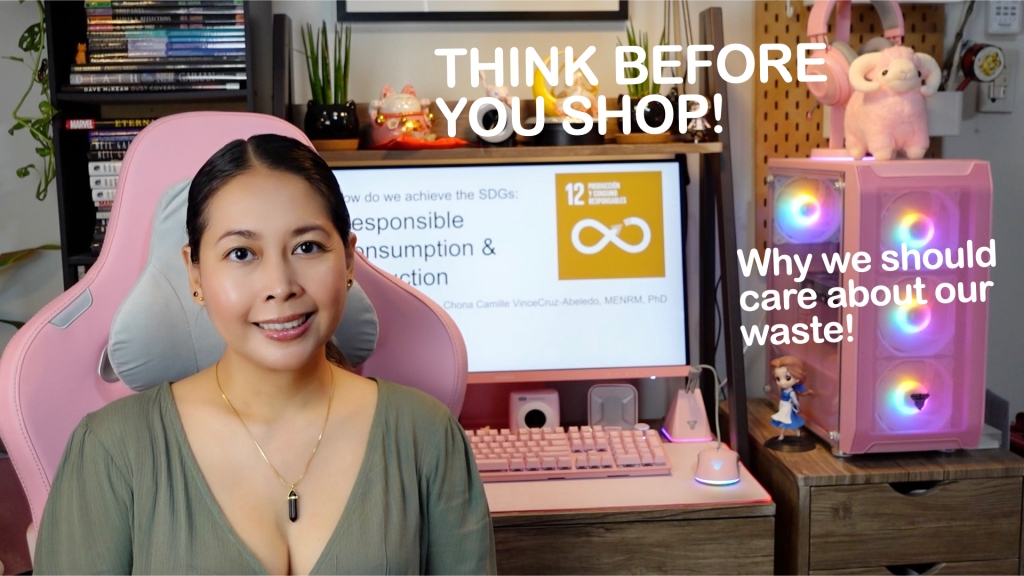Hello Science Fans!
How can STEM help make what we buy and what we use more sustainable?
In this video, we talk about the status of food, water, and energy all over the world — highlighting issues that damage the environment, and how our current lifestyles are unsustainable. We then discuss the different indicators that the United Nations (UN) has created to help achieve Sustainable Development Goal 12 (SDG 12): Responsible Consumption and Production. We look at the current situation in the Philippines, and assess how much effort we still need so that we can improve how we handle our waste, how we create our food, and how we make more people become aware of sustainability issues. And, of course, we look at the valuable contributions that STEM can make to achieve this SDG!
So if you want to learn how we can make shopping more sustainable, please check out this video!
Learn more about the SDG’s here: https://sdgs.un.org/goals
Thank you so much for dropping by!
If you have any comments, questions or suggestions, please don’t hesitate to contact me, your resident Filipina scientist, in the comments section below.
And remember, when in doubt, always use your (con)science!


One response to “Think Before You Shop! Can STEM Make What We Buy More Sustainable? | SHE-ensya Sustainability Series”
I think a large problem comes from the companies putting built-in obsolescence into their products, which consumers can’t control. As an example, when I recently had to buy a new refrigerator, I was told they are only designed to last 8-10 years now, while I have a freezer that was my father’s that is still going strong 25 years later. Likewise, an electric clothing dryer of my grandparents from the 1980s is still going strong while new dryers only get 15 years max before they aren’t worth the cost of repairing anymore.
We try to repair and reuse as much as possible in my house, but it can be really difficult to be conscience consumers in the face of corporate greed.
STEM is amazing for helping out the environment, but it needs to be given a chance.
LikeLike